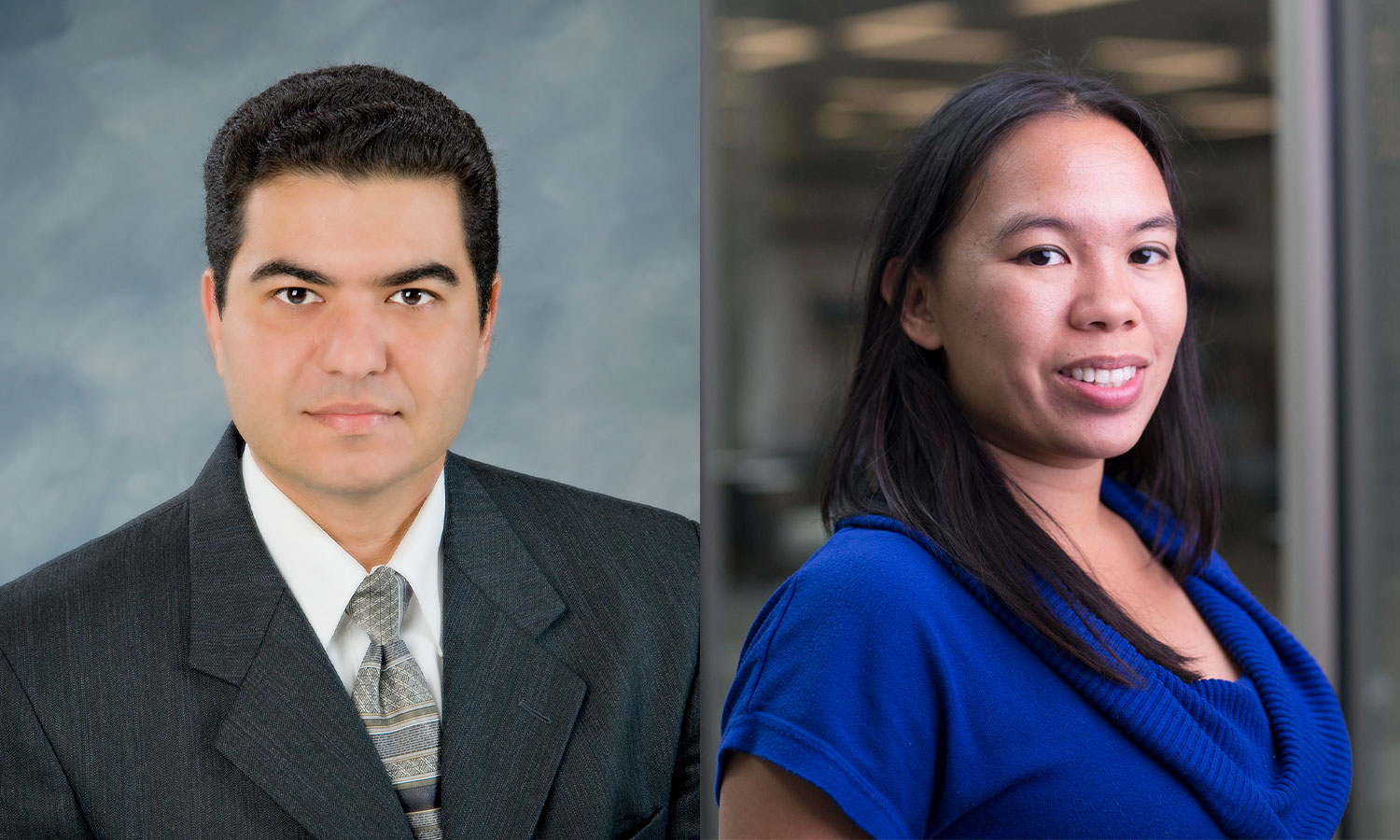VCU Engineering faculty members receive VCU Community-engaged Research Grants

by VCU Office of Institutional Equity, Effectiveness and Success
Two faculty members in VCU’s College of Engineering have received Community-engaged Research (CEnR) grants for 2021.
Sherif Abdelwahed, Ph.D., professor in the Department of Electrical and Computer Engineering, received a CEnR Health Equity award for a project using data analytics to address food insecurity.
Thea Pepperl, Ph.D., assistant professor in the Department of Biomedical Engineering, received a CEnR Impact award for a project to help lay rescuers to perform a pulse check during CPR.
VCU’s CEnR Health Equity Grant initiative, developed in partnership with the VCU Health Equity Initiative, supports the vision of improving the health of residents in the greater Richmond area by working with community partners and co-researchers. This year’s inaugural CEnR Impact Grant was developed in partnership with VCU Real and the Undergraduate Research Opportunities Program. It supports learning experiences and aims to support students’ social mobility and career readiness through exposure to high-impact educational practices addressing issues of equity and justice.
Learn more about all of the 2021 CEnR Health Equity Grant recipients and the 2021 CEnR Impact Grant recipients.
Project: Addressing Healthy Food Access and Food Insecurity through Data Analytics and Community Engagement
Investigator: Sherif Abdelwahed, Ph.D.
Food deserts, which are generally defined as areas in which it is difficult to buy affordable, high-quality fresh food, often prevent underserved and low-income communities from accessing healthy food. This project aims to address the food insecurity problem in the greater Richmond area, especially in East End and Southside areas of Richmond that are potentially experiencing severe food insecurity, by engaging a wide range of food access-related stakeholders and using the power of advanced data analytics. The intellectual merit of this work includes: (1) developing a fundamental understanding of challenges in food-insecure communities, (2) understanding the factors contributing to food insecurity, (3) developing a multi-sectoral database to address the issue and (4) developing analytical methods to implement effective solutions and evaluate their impacts. In this project, researchers will use geospatial methods to improve granular accuracy in identifying food-insecure populations, their socio-economic characteristics and advanced modeling to predict food-service demands.
Project: Community-Engaged Research in the Biomedical Engineering Classroom
Investigator: Thea Pepperl, Ph.D.
This CEnR project will train biomedical engineering students in how to interact with the medical community and community-based practitioners to produce design solutions to address the ability of lay rescuers to perform a pulse check during CPR. This can improve patient outcomes and address health equity in underserved populations.
Categories Biomedical Engineering, Electrical & Computer Engineering, Research Grants